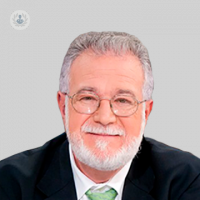Effects of aging and how to prevent
Written by:All people over 30 years of age begin their aging process in a recognizable way that has actually begun before, with a speed that increases as time passes and that can increase if unhealthy life forms are used.
This happens especially in women, the arrival of menopause with the almost total disappearance of female hormones, is a significant qualitative leap in the deterioration of the body.
The functions that are most affected are:
- The body composition with increased fat and decreased muscle.
- Cardiovascular function with decreased exercise capacity.
- The respiratory system with the appearance of fatigue and frequent infections.
- The gastrointestinal tract with digestive problems and the endocrine system with hormonal changes, especially the aforementioned disappearance of sex hormones.
- There may also be a decrease in sexual activity.
- The skin becomes thin and pigmentary alterations appear.
- Mood is modified with apathy and decreased learning ability.
- It decreases the memory and the capacity of concentration.
Smoking, sedentary life, drinking large amounts of alcohol, eating lots of fat and few fruits and vegetables accelerate the deterioration process associated with aging.

Why do we age?
The metabolism necessary for life and that takes place thanks to the uptake of oxygen with breathing is accompanied by oxidative stress phenomena in which free radicals are released, which deteriorate little by little to the body. In young individuals there are a number of antioxidant substances that prevent or at least limit cell damage but as we age, these substances decrease and at the same time the metabolic process becomes more inefficient, which increases the production of free radicals and therefore of oxidation. At the same time processes of chronic inflammation that act through these same free radicals occur. All these changes are especially evident after menopause.
All this is limiting the capacity of regeneration of the tissues with what is produced an increasing deterioration of the functions of the organism, since the lesions that appear can not be repaired.
The speed of aging is different for different individuals, so the process of deterioration is not necessarily a faithful reflection of the chronological age in all of them. It is the biological age that establishes the effective relationship with the alterations in the different functions. Of that speed of aging is responsible, in part, the genetic load but to a much greater extent the very way of living. All individuals do not age the same (the genetic load is different), but undoubtedly the way of life is more important than the genetic load. This is the basis of anti-aging treatments, which aim to provide an "excellent treatment" to our body, thereby achieving a slowing of the speed of aging and in some cases even the reversal of some of its alterations.
Prevent aging
In the unit of comprehensive preventive treatment of the Clinic Tambre is devoted great attention to the situation of the oxidizing and inflammatory elements of the body and the protective elements (antioxidants and anti-inflammatory), as well as the most important hormones, first making an approximate diagnosis of biological age.
One of the things that play a preponderant role in the prevention of the aging process is to make a healthy diet and reduce daily caloric intake. This beneficial effect in monkeys has been demonstrated unquestionably, therefore, we can no longer ignore the results. Therefore, diet is one of the pillars of treatment.
Based on the aforementioned biological, a treatment based on diet, exercise and drugs is established with varied actions fundamentally antioxidants, which may also include some hormones.



